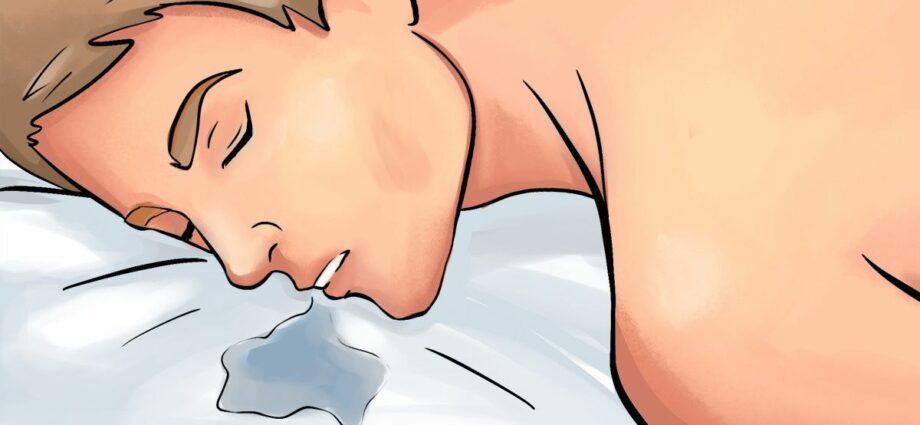Why does an adult drool during sleep
We are sure that you have encountered this and considered it an absolute norm, but it is not so.
The discomfort and hygiene problems that occur when drooling at night are familiar to both adults and children. And if in a nursing baby, flowing saliva can even become a reason for affection for parents, then an adult definitely does not need this. Even a severe cold can become a side effect of the process – it is bad to sleep on a wet pillow in a cool room.
Typically, this problem has two causes: increased salivation associated with various processes (for example, teeth teething in children), or difficulty breathing, as well as the associated habit of sleeping with your mouth open.
Abundant saliva can be a kind of norm – if it does not bother a person, then there is nothing to fear. But breathing difficulties are unpleasant both in themselves and when they are symptoms of certain diseases or signs of injury:
· Damage to the nasal septum;
· Narrowing of the respiratory passages due to the proliferation of lymphoid tissue, inflammation of the sinuses, lymph nodes;
· Increased salivation due to manipulations in the oral region – removal or treatment of teeth, operations on the palate or lips;
· Nasal congestion with a cold or an infectious disease.
Very often people prone to snoring suffer from excessive salivation. Also, the problem – drooling during sleep in an adult – is associated with excess weight and high blood pressure.
During many studies, scientists have found that this may be due to difficulty in swallowing functions that occur with traumatic brain injury, stroke or Parkinson’s disease. This will often show up during the day.
What to do if drooling during a night’s sleep:
- if a child is drooling during sleep, most likely this is due to the growth of teeth or, like an adult, with difficulty breathing;
- for babies with clearly erupting teeth, anxiety is unreasonable, but you still need to follow the baby – perhaps teeth are not the only reason;
- if the teeth have erupted, and the excessive salivation has not disappeared, you should change the sleeping position and, probably, consult an ENT doctor to check the air passages.
The same applies to adults:
- the best option with current saliva would be to sleep on your back, and persistent sleeping habits on your back are difficult to get rid of – you will have to put a roller or fold the blanket so that it interferes with turning;
- you can also raise the pillow higher, replace it with a more rigid product;
- It is also advisable to drink less fluids before bedtime and, if possible, get rid of excess weight, normalize the body as a whole.
A visit to the doctor with continued drooling will also not be superfluous.










